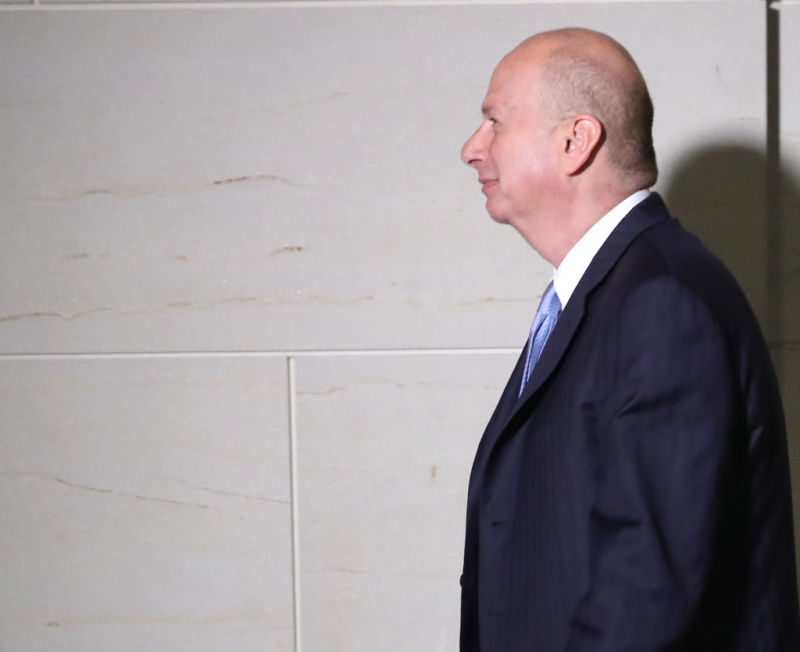Impeachment hearing reveals major White House phone security fail


Enlarge / US Ambassador to the European Union Gordon Sondland's phone conversation with President Trump in June was overheard by embassy staffers with Sondland at a Kiev restaurant (and probably by other countries' intelligence services). (credit: Mark Wilson / Getty Images)
In testimony yesterday before the House Intelligence Committee, diplomat William Taylor said that he had recently learned of a phone call between George Sondland—the US ambassador to the European Union—and President Donald Trump. Taylor, the senior diplomat for the US in Ukraine, said that his staff overheard Trump during a call with Sondland while at dinner with the ambassador at a restaurant in Kiev.
The contents of that discussion—that Trump asked Sondland about "the investigations" Trump wanted Ukraine to conduct as an alleged condition of releasing military aid—may or may not be damaging to the president's case that he was not seeking foreign assistance for his 2020 presidential campaign. But as anyone in national or diplomatic security will attest to, an open phone call between the President and an ambassador regarding topics of diplomatic interest in a public place like a restaurant—somewhere where any foreign intelligence organization could be monitoring for collection purposes—would be a major breach of operational (and national) security.
This is not the first time that the administration has let issues of national security play out before a public audience. In February of 2017, President Trump consulted with Japanese Prime Minister Shinzo Abe and made phone calls regarding a North Korean ballistic missile test from the restaurant of his Mar-A-Lago resort in Palm Beach, Florida in plain view and within earshot of other diners—some of whom essentially live-streamed the situation from their cell phones. A few months later, Trump shared intelligence data with Russia's foreign minister and ambassador in an Oval Office meeting concerning an Islamic State plot to bring down passenger planes with laptops turned into bombs.
Comments
Post a Comment